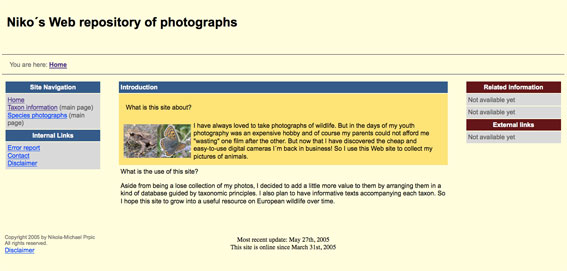
Fig. 1: Screenshot of the home page of my site as it looked in 2005. At that time
my site was still called "Niko´s Web repository of photographs". This style of page layout was used until 2006
and has been completely replaced by newer styles today.
In 2006, I decided to make my site a little bit more useful by adding information about the species, e.g. facts about their distribution, biology and systematics. To reflect these changes, I also changed the

Fig. 2: In 2006 the layout changed along with the name that was now "Web repository of information about European animals".
In 2007, I decided to change the focus of my site and restrict it to the fauna of Germany. In addition, I had the feeling that my site needed a proper logo and a name, that should be easier to memorize than the previous overly long titles. The name was supposed to combine the initial idea to have a repository for images and information, with the new focus on the German fauna. After a long period of thinking about a new name and a visually attractive logo, I finally decided on "DEpository" and the two-part logo with mainly green colors (Fig. 3). The "DE" part of the name alludes to the international abbreviation of Germany, that is also used as its internet TLD. And the "pository" part directly derives from the repository nature of my site.
I used the name "DEpository" for my site from 2008 to 2016. During these years my site has grown slowly but steadily, and from the growing number of image requests and citations in blogs, wikis and scientific publications, I presume that my site has also been gaining users over the years. Renaming my site into "Zoographia Germaniae" was therefore not a

Fig. 3: In 2008 the name "DEpository" and the bipartite green logo made their debut.
The change of the name to "Zoographia Germaniae" makes the name of my site more specific and thus I hope it can be found more easily using internet search engines. A survey performed in 2016 before the launch of the new name for my site and using the two search engines Google and Bing did not return any search results for "Zoographia Germaniae", thus suggesting that the new name is indeed unique. In addition, the new name now conveys better the purpose of my site: In the 19th century, a "zoographia" was a book that attempted to collected all essential knowledge about the species of an area, and also tried to provide means for their identification, e.g. illustrations and detailed descriptions.